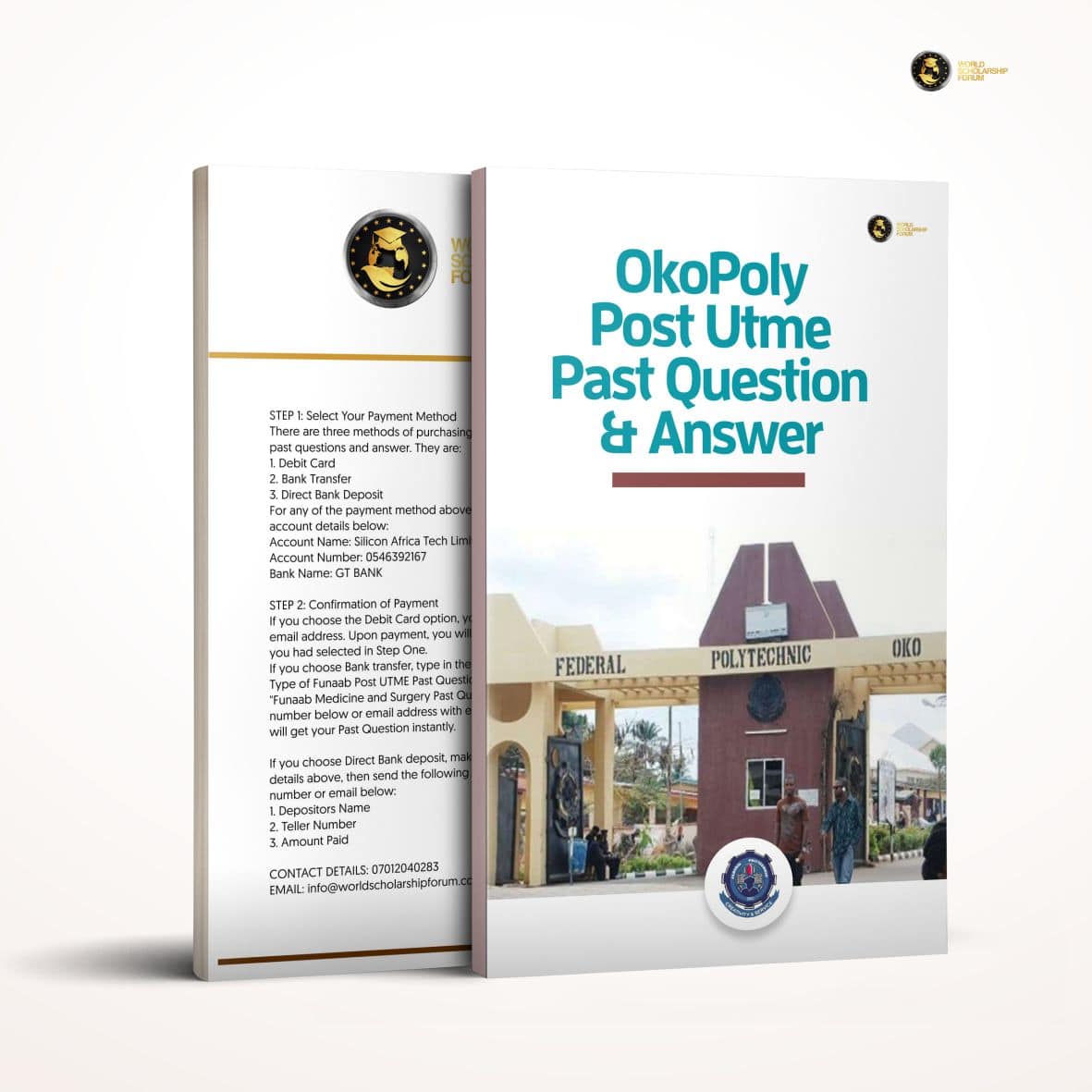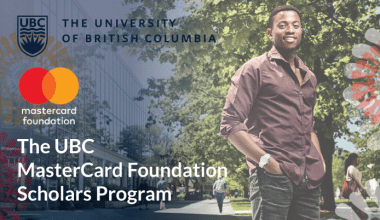We bring detailed information about universities worldwide at the World Scholarship forum. The article you are about to read is a well-researched article on how to study at Ghent University in Belgium; the article is about its history, admission process, faculties present in the school, bachelor’s and masters programs run in UGent, scholarship opportunities, an exchange student program, Ph.D. vacancies, QS ranking and many more.
The Ghent University (Dutch: Universiteit Gent) is a public research university in Belgium. It was established in 1817 by King William 1 of the Netherlands as a Latin-speaking State University.
After the Belgian revolution of 1830, the newly formed Belgian State began administering the University.
In 1930 UGent became the first Dutch-speaking university in Belgium, whereas French had previously been the standard academic language. In 1991 the University was granted major autonomy and changed its name from the State University of Ghent to the Ghent University.
Ghent University is abbreviated as UGent. The motto of the UGent in Latin is “Inter Utrumque” and translated to mean “in between and both” in English. The first rector of the UGent was JC van Rotterdam. The current rector is Rik van de Walle.
Table of contents
- Brief Facts and Figures on the Ghent University:
- The website of the Ghent University:
- Address of the Ghent University:
- Ghent University Rankings:
- Ghent University Notable Alumni:
- Ghent University Faculties:
- Ghent University Scholarship Opportunities:
- Ghent University Tuition Fee:
- Ghent University Acceptance rate:
- Conclusion
Brief Facts and Figures on the Ghent University:
Located in Flanders, the Dutch-speaking part of Belgium and Europe’s cultural and economic heart, Ghent University is an active partner in national and international educational, scientific, and industrial cooperation. Ghent University is a top 100 university and one of the major Belgian universities. The UGent has an administrative staff strength of 9,000 and an extra staff of 6,000 of the UZ Gent. There are 41,000 students currently running a program in UGent. In 2017, UGent celebrated its 200th anniversary. UGent has an annual revenue of €410 Million. Ghent University is one of the most prominent Flemish universities. The UGent supports the University library and the University Hospital, one of Belgium’s largest hospitals.
Affiliations:
The UGent is affiliated with various organizations like the Conference of European Schools for Advanced Engineering Education and Research called CEASER, the International Exchange Erasmus Student Network (ERASMUS), the European University Association, and the Stantander Network.
The website of the Ghent University:
www.ugent.be
Address of the Ghent University:
The Ghent University permanent address is St. Pietersnieuwstraat 33, 9000 Gent, Belgium.
Ghent University Rankings:
UGent consistently rates among the top universities in Belgium and worldwide.
The US News Best Global Universities Ranking placed UGent in the 88th position.
The Times Higher Education World 2017 ranking placed the UGent in 107th place.
The QS(Quacquarelli Symonds) World University ranking placed the UGent in 138th place. The UGent ranked 75th among the World’s most innovative universities for 2017.
In Belgium, UGent was ranked 2nd in 2016.
National Taiwan University Ranking for 2017 placed the UGent in 65th position.
The UGent placed 69th in the 2017 Academic Ranking of World Universities, also called the Shanghai Rankings.
Ghent University Notable Alumni:
A lot of Notable Alumni of the UGent include more than 3 Nobel Prize winners, an Assistant Secretary-General of the United Nations, a President of the International Olympic Committee, a Governor of the National Bank of Belgium, a co-inventor of the World Wide Web, one time Prime Minister of Belgium and many more reputable names littered across every profession.
The UGent comprises 11 faculties with over 130 departments and 8 administrative departments. In addition, the UGent maintains the Zwignaarde Science Park and Greenbridge science park.
Ghent University Faculties:
The 11 faculties in UGent include:
- Faculty of Arts and Philosophy
- Faculty of Law and Criminology
- Faculty of Sciences
- Faculty of Medicine and Health Sciences
- Faculty of Engineering and Architecture
- Faculty of Economics and Business Administration
- Faculty of Veterinary Medicine
- Faculty of Psychology and Educational Sciences
- Faculty of Bioscience Engineering
- Faculty of Pharmaceutical Sciences
- Faculty of Political and Social Sciences.
Bachelor’s Degree Programmes By Area in the UGent:
- Philosophy and Moral Sciences
- Linguistics and Literary Studies
- History
- Archaeology and Art Sciences
- Law, Notarial Law, and Criminology
- Psychology and Educational Sciences
- Economics and Business Economics
- Political and Social Sciences
- Social Health Sciences
- Physical Education and Rehabilitation Sciences
- Sciences
- Engineering
- Applied Biological Sciences
- Medicine
- Dentistry
- Veterinary Medicine
- Pharmaceutical Sciences
- Biomedical Sciences
- Industrial Sciences and Technology
- Audiovisual and visual arts
- Music and Performing Arts
- Biotechnology
- Business Studies
- Applied Language Studies
- Nautical Sciences
Master’s Degree In UGent:
If you wish to Study at Ghent University, the school runs ten programs for its Master’s degree.
- Environmental Studies & Earth Sciences.
- Engineering & Technology
- Medicine & Health
- Natural Sciences & Mathematics
- Agriculture & Forestry
- Applied Sciences & Professions
- Business & Management
- Social Sciences
- Computer Science & IT
- Law.
Ghent University Scholarship Opportunities:
Students who wish to study at Ghent University can find many scholarship opportunities. The Ughent provides top-up grants to students who want to obtain a master’s degree. The scholarship grant goes to candidates on the OESO-DAC list(candidates from least developed countries). Each year 15 scholarships can be awarded.
The scholarship fee consists of the following:
Allowance of €650 per month.
All-in insurance (health, civil liability, repatriation). A top-up grant student is required to pay the EEA students’ tuition fee.
New students who wish to apply for the top-up grant scholarships must have a bachelor’s degree.
To be eligible for the top-up grant scholarships, a student has to be from one of the OESO-DAC countries, any of the least developed, other low-income countries, lower middle-income countries and territories, upper middle income countries and regions.
The coordinator of each English-taught Master’s program would propose their top 3 students to the Committee for Development Cooperation. Then the Committee for Development Cooperation selects the applications based on the recommendations obtained from a working group of this Committee. The Committee then proceeds to formulate well-founded recommendations for the Executive Committee of Ghent University.
There’s no age limit to the top-up grant scholarships, although applicants below 40 are preferred. The significance of the master’s program for the student’s country. Validation of the knowledge in the student’s country.
Ghent University Tuition Fee:
The tuition fee for UGent students is categorized into two; tuition fees for EEA and non-EEA students. The tuition fee also consists of a fixed amount and an amount per credit.
The tuition fee for Bachelor’s degree programs, Linkage Programme, and Preparatory program for the 2018-2019 academic session is €238.30 fixed amount + € 11.40 per credit. For 60 credits: €922.30
Study allowance Flemish Community (“Studietoelage”) €108.80. For more details on the UGent tuition fee, check the University website. The tuition fee for non-EEA students enrolled in Dutch-taught bachelor’s degree programs is the same for the Masters’s degree program.
Tuition fee for Masters Programme (not advanced) and specified teacher program 2024.
By Faculty:
- Faculty of Arts and Philosophy
Standard tuition fee (€238.30 fixed amount + €11.40 per credit) + higher tuition fee (€14.50 per credit)
For 60 credits: €1792.30
- Faculty of Law and Criminology
Standard tuition fee (€238.30 fixed amount + €11.40 per credit) + higher tuition fee (€76,70 per credit)
For 60 credits: €5524.30
- Faculty of Sciences
Standard tuition fee (€238.30 fixed amount + €11.40 per credit) + higher tuition fee (€14.50 per credit)
For 60 credits: €1792.30
- Faculty of Medicine and Health Sciences
Standard tuition fee (€238.30 fixed amount + €11.40 per credit) + higher tuition fee (€76,70 per credit)
For 60 credits: €5524.30
- Faculty of Engineering and Architecture
Standard tuition fee (€238.30 fixed amount + €11.40 per credit) + higher tuition fee (€76,70 per credit)
For 60 credits: €5524.30
- Faculty of Economics and Business Administration
Standard tuition fee (€238.30 fixed amount + €11.40 per credit) + higher tuition fee (€76,70 per credit)
For 60 credits: €5524.30
- Faculty of Veterinary Medicine
Standard tuition fee (€238.30 fixed amount + €11.40 per credit) + higher tuition fee (€76,70 per credit)
For 60 credits: €5524.30
- Faculty of Psychology and Educational Sciences
Standard tuition fee (€238.30 fixed amount + €11.40 per credit) + higher tuition fee (€14.50 per credit)
For 60 credits: €1792.30
- Faculty of Bioscience Engineering
Standard tuition fee (€238.30 fixed amount + €11.40 per credit) + higher tuition fee (€76,70 per credit)
For 60 credits: €5524.30
- Faculty of Pharmaceutical Sciences
Standard tuition fee (€238.30 fixed amount + €11.40 per credit) + higher tuition fee (€35,20 per credit)
For 60 credits: €3034.30
- Faculty of Political and Social Sciences
Standard tuition fee (€238.30 fixed amount + €11.40 per credit) + higher tuition fee (€14.50 per credit)
For 60 credits: €1792.30
>Interfaculty Master-after-Bachelor Programmes
- Faculty of Sciences and Faculty of Bioscience Engineering, and Faculty of Engineering and Architecture
- ‘Master of Science in Bioinformatics:
Standard tuition fee (€238.30 fixed amount + €11.40 per credit) + higher tuition fee (€14.50 per credit)
For 60 credits: €1792.30.
- Diploma contract and credit contract
€ 238.30 fixed amount + € 11.40 per credit
For 60 credits: € 922.30
Study allowance Flemish Community (“Studietoelage”) € 108.80.
Ghent University Acceptance rate:
All bachelor’s degree programs in UGent are taught in Dutch. English is the language of instruction in several Master’s programmes.
Admission into Bachelor’s program in UGent.
To be admitted into UGent, a prospective student must meet the admission requirements before starting the application online.
A student must meet two main requirements before starting the application online.
1) Possess a basic diploma.
2) a student is to meet the language requirements.
Basic Diploma:
UGent grants admission to any student based on a diploma, irrespective of nationality. Most qualifications obtained abroad do not grant direct admission. This means the diploma is not equivalent to a Flemish diploma, and admission can be given after an individual application process.
Admission into Ghent University Bachelor’s Degree Programme:
For prospective students who want to study at Ghent University and apply through “direct admission.” The list of diplomas the UGent accepts is listed on its website. If your diploma is listed on the school’s website, you must upload it and its transcripts. You will then be informed by e-mail on how to proceed with enrollment.
Ghent University accepts diplomas such as:
- a Belgian degree, for specific diplomas, a list is available in Dutch
- a “European Baccalaureate” issued by a European School
- an “International Baccalaureate – du baccalauréat international” delivered by the International Baccalaureate Office (Geneva, Switzerland)
- a diploma from the NATO SHAPE-school
- Germany: “Zeugnis der allgemeinen Hochschulreife/Abitur”.
- France: “Baccalauréat Général”, “Baccalauréat Technologique” or “Baccalauréat Professionnel”
- Luxembourg: “Certificat de Fin d’Etudes secondaires” or “diplôme de Fin d’Etudes secondaires techniques”
- The Netherlands: “Voorbereidend wetenschappelijk onderwijs” (VWO)”, “Getuigschrift van met goed gevolg afgelegd propedeutisch examen” of “Getuigschrift Propedeuse Hoger Beroepsonderwijs”
- Suriname: “Voorbereidend wetenschappelijk onderwijs” (VWO)”
- USA: “High school diploma” + transcript of records, with a minimum of 4APs (Advanced Placements), with an original Apostille seal
- A foreign diploma declared equivalent by NARIC
- A foreign university bachelor’s or master’s diploma, correctly certified/legalized
- A correctly certified/legalized diploma with an accompanying access declaration stating that, on the grounds of that diploma, the student can be admitted to university studies of the country where the diploma was awarded if this country has ratified the Lisbon Recognition Convention.
Apply for admission:
If an individual is admitted in his/her own country, then chances are that individual might be accepted into the UGent but would need to fill out an application process which would include the following:
>Declaration of access to a university bachelor program in the country where the diploma was awarded for access to a bachelor program at Ghent University an authorized person confirms this by completing this form
>A confirmation that you have been accepted at a university in your home country
>A certificate of enrolment from a university in your home country.
Language Requirements:
All bachelor programs are instructed in Dutch.
You cannot enroll without valid proof of the required level of Dutch
Dutch at level B2 is required upon enrolment for most bachelor programs
Level C1 is required for the Bachelor of Arts in Applied Language Studies (Bachelor of Arts in de toegepaste taalkunde).
Masters Programmes Taught in Dutch:
Most Master’s degree programs are taught in Dutch; you cannot enroll without valid proof of the required level in Dutch.
Dutch at level B2 is required upon enrolment into most master’s degree programmes.
Masters Degree Programme Taught in English.
Some Master’s degree programs are taught in English; you cannot enroll without valid proof of the required level of English.
English at level B2 is required upon enrolment into most master’s degree programmes.
Validity of Language Proof:
The prospective students must possess a truth of language proof.
On the UGent website, the validity of language proof states that:
Any accepted proof of language proficiency must be valid upon enrolment
The validity date mentioned on the language certificate cannot be exceeded
Suppose no validity date is mentioned on the language certificate. In that case, the certificate can be no older than 4 academic years, counting from the academic year after the proof of language was acquired.
How To Apply For A Bachelor’s Degree Programme:
There are four steps that a prospective student must pass through if he/she is to apply to Ghent University. These steps are:
- Make sure that you meet the admission requirements
- Check application deadlines
- Start up the application procedure
- Legalize your documents.
Admission To Masters Programme In UGent:
There are two types of Master’s programs at Ghent University.
There are the following:
1)(Initial) master, also referred to as manaba.
2)Advanced or subsequent master, also referred to as manama.
Under the Initial Masters(Manaba)
Initial) master
Holders of an appropriate Belgian academic bachelor’s degree
Holders of a foreign university bachelor’s degree or higher education bachelor diploma: Bachelor of minimum three years
In some cases, applicants cannot be admitted directly to a master’s program but have to do a specific preparatory or linking course (between 45 and 90 ECTS credits) first, depending on their previous studies
2)Under the Advanced Masters (Manama), the provisions are:
Holders of an appropriate Belgian master’s degree (manaba)
Holders of a foreign university master’s degree or higher education master’s diploma
Most advanced master’s programs only accept applications from holders of a master’s diploma; certain programs may accept a bachelor of minimum 4 years.
UGent Ph.D. Vacancies:
Ghent University sets out its priorities to recruit the best to tutor its students in university-wide human resources. There are currently no vacancies for Ph.D. positions at Ghent University.
UGent Programme For Exchange Students:
UGent offers a wide range of courses for its exchange students, which are taught in English. UGent accepts exchange students into its 11 faculties which are;
- Faculty of Arts and Philosophy
- Faculty of Law and Criminology
- Faculty of Sciences
- Faculty of Medicine and Health Sciences
- Faculty of Engineering and Architecture
- Faculty of Economics and Business Administration
- Faculty of Veterinary Medicine
- Faculty of Psychology and Educational Sciences
- Faculty of Bioscience Engineering
- Faculty of Pharmaceutical Sciences
- Faculty of Political and Social Sciences.
Each faculty has regulations regarding the courses an exchange student can take. More information about the exchange program at UGent can be found on the school website.
Conclusion
This is all the information about Ghent University. We hope you enjoyed reading through it.





